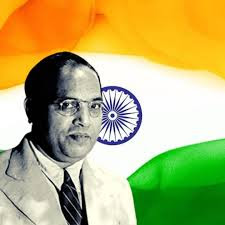Dr. B.R. Ambedkar played a crucial role in drafting the Constitution of India, which came into effect on January 26, 1950. His efforts were instrumental in shaping the document that serves as the foundation of India's democratic governance. Ambedkar's contributions to the Constitution were significant, reflecting his commitment to social justice and equality.
Some key points about Ambedkar's role in the Constitution:
1. Chairperson of the Drafting Committee: Ambedkar was appointed as the Chairperson of the Drafting Committee, responsible for framing the Constitution.
2. Commitment to Social Justice: Ambedkar's experiences as a social reformer and advocate for the rights of the marginalized communities influenced the inclusion of provisions promoting social justice in the Constitution.
3. Fundamental Rights:He emphasized the importance of fundamental rights, ensuring that the Constitution protects the individual liberties of citizens.
4. Abolition of Untouchability: Ambedkar advocated for the abolition of untouchability and the promotion of equality, leading to the inclusion of provisions addressing discrimination based on caste.
5. Reservation System: The Constitution includes provisions for affirmative action, with reservations for Scheduled Castes (SC), Scheduled Tribes (ST), and Other Backward Classes (OBC), aimed at addressing historical social inequalities.
As for sacrifices, while Ambedkar faced numerous challenges and discrimination throughout his life, his commitment to social reform and the drafting of a progressive Constitution was a significant contribution to India's development as a democratic and inclusive nation.
.jpeg)
.jpeg)
.jpeg)
.jpeg)
.jpeg)
.jpeg)
.jpeg)
.jpeg)


.jpeg)
.jpeg)
.jpeg)
.jpeg)
.jpeg)